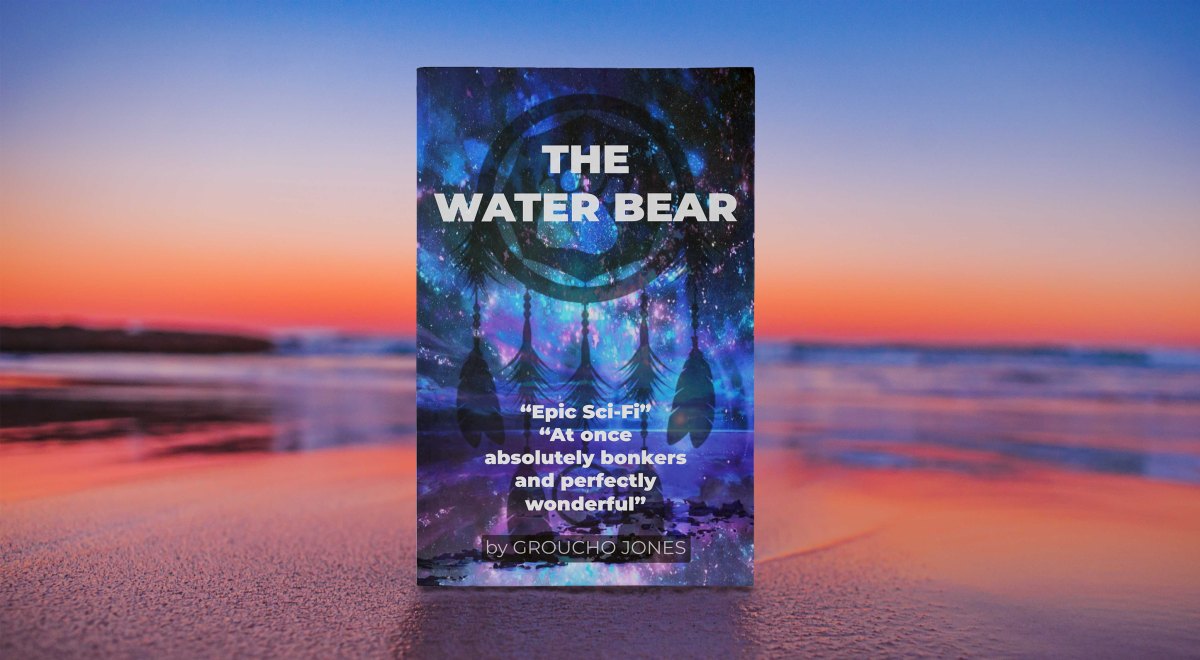
How far would you go to stop a war? To save a world? To save a child? To save everything?
A personal message from the author:
They say that everyone has a novel in them. I thought for twenty years before writing The Water Bear.
My dream was to write a cinematic fantasy, full of ideas, with characters people remember. I hope I succeeded. While I was writing, the book came alive in my mind. I could see all the scenes like I was watching a movie. My characters remain as real to me now as they were when I was sat up at midnight, night after night, writing.
I also wanted to build worlds. Covid isn’t so bad, when you can go anywhere you want, in your imagination. The worlds in The Water bear are the worlds I’d want to visit. A lustrous white cube, with five billion people inside it, orbiting Aldebaran. A cinnabar world, with endless red forests. An industrial station, like all the world’s factories.
And also the mind. The second half of the world is set in the human unconscious, which can be anything we dream it to be.
If my readers only experience a part of that, I’ll be a happy paperback writer.
I also wanted to write a serious book, about the most vital problem we face as a species, which is our climate. This is a conservationist book, although climate plays no role in the story. Instead, an advanced civilization has to deal with a different threat. How to intervene, without destroying what they set out to save?
I’ll give away some of the ending: they do pretty well.
How? Thanks to their young people.
— Groucho Jones
The year is 2075, and the people of Earth have been prevented from destroying their own planet. While protesters burn cars in the streets, Ophelia Box is recruited into a covert peacekeeping unit. Her mission is to prevent a genocide. The problem is the genocide is in the past. She becomes a player in an adventure that spans the quantum wavefunction, from the beginning to the end of time, in this universe and beyond. Her companions are soldiers of the Po, the special forces of the human galaxy. Their clever and deceptive ship is called the Water Bear.
Box had never liked rollercoasters. It wasn’t just the sickening feeling of weightlessness, which welled up from the pit of her stomach and filled her with a bone-jarring emptiness. It was a rat’s nest of primal horrors. The fear of heights. The fear of being cast into the abyss.
All that now changed. When the ship fell out of the Orbiter, into the gravity well of the gas-giant planet, and the lattice of seats swiveled smoothly to anticipate a change of direction, she whooped with exhilaration.
“Engaging gravity drive,” said the ship, delivering its lines like a Hollywood starlet playing Chuck Yeager. There were a few moments of intense acceleration, and they were falling in a new direction.
Box laughed out loud. So, this is what I’ve been missing out on. Except that she was falling through the ecliptic of Aldebaran, with some kind of black-ops space soldiers, not riding on a Blackpool rollercoaster with children.
With the help of a robot ghost, and time-traveling insects, and a cult that’s a hedge fund, our heroes go as far as it’s possible to go, and save everything.
Amazon UK
